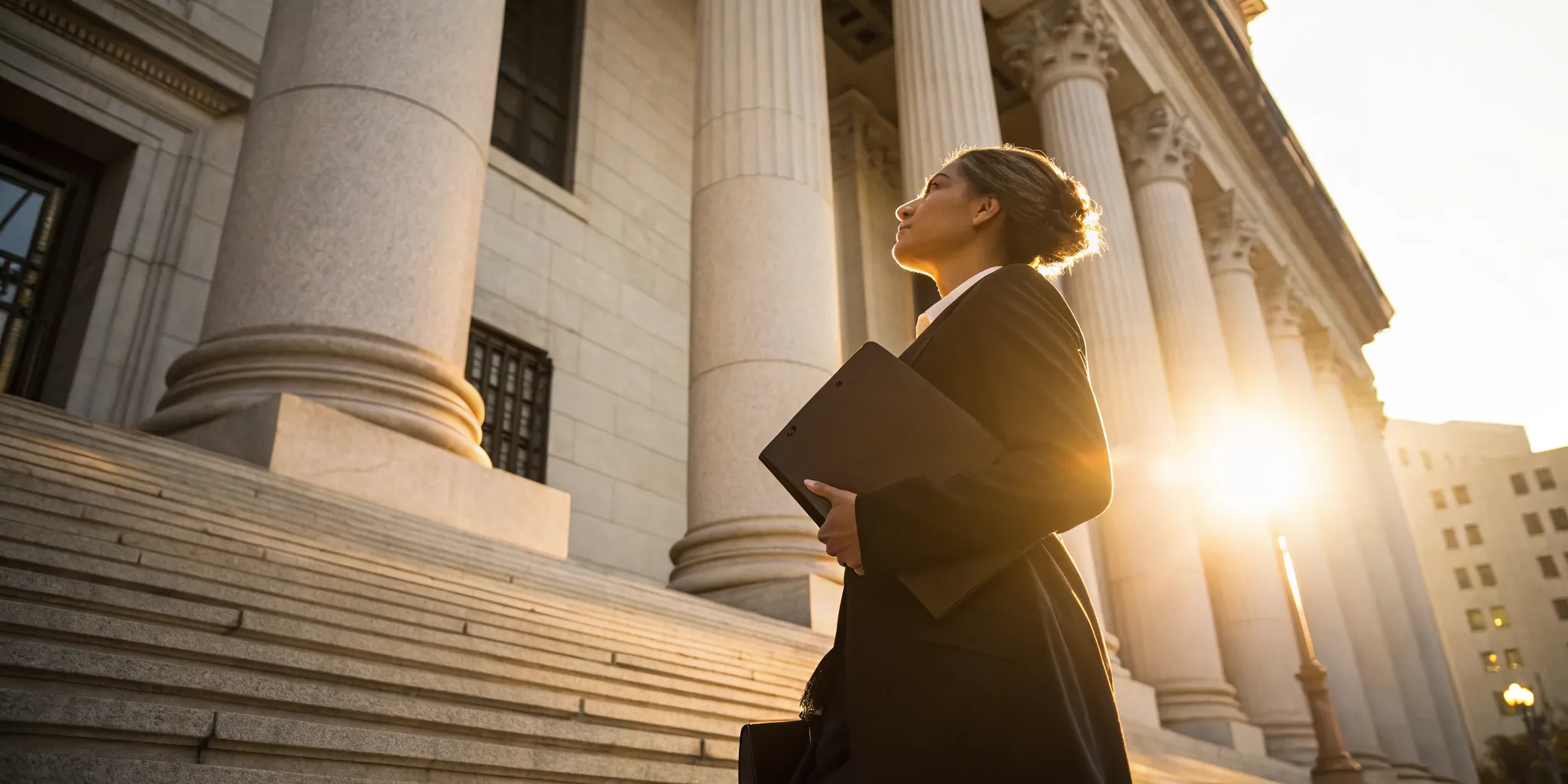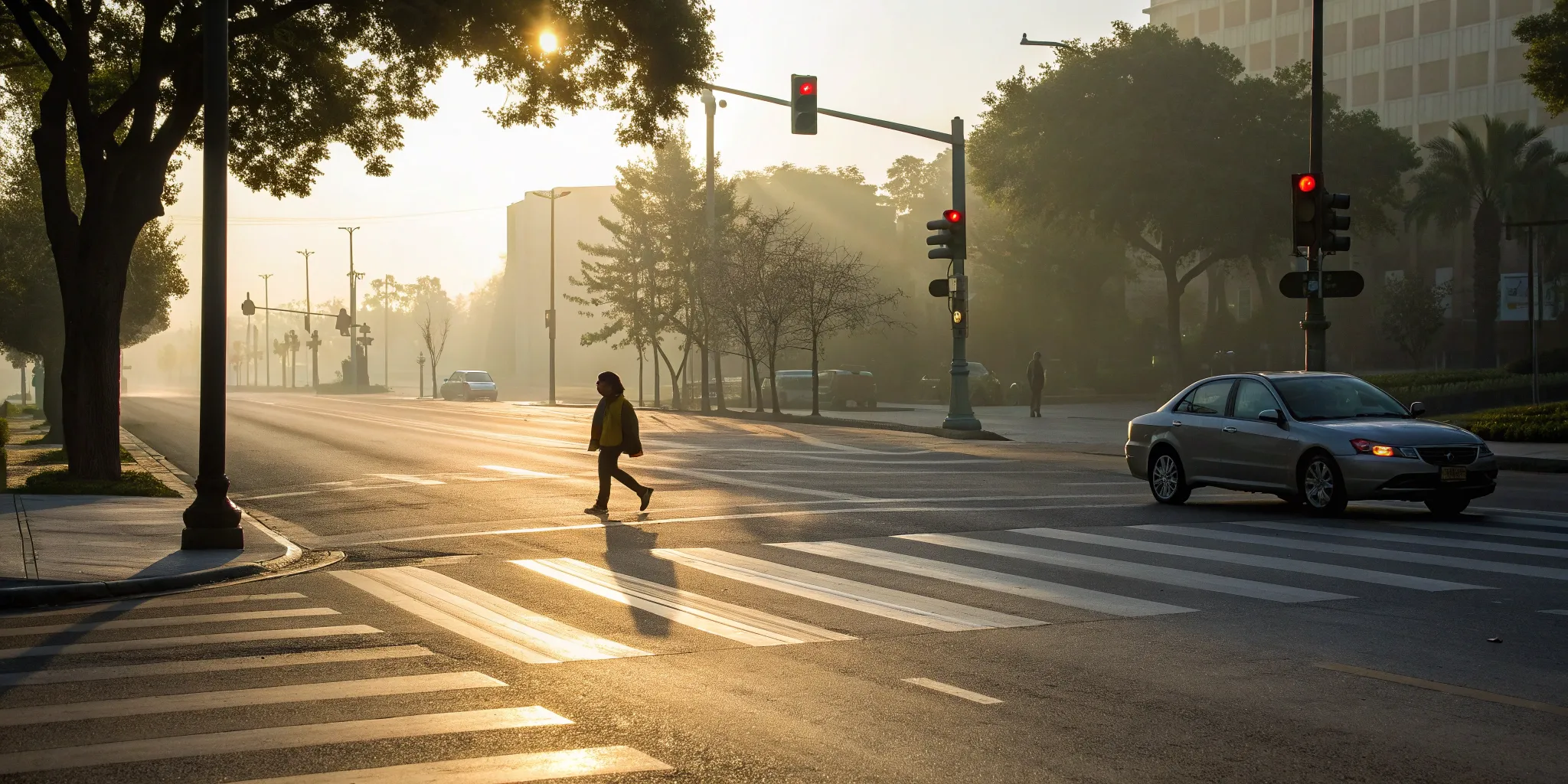A car accident isn’t just about bent metal and physical injuries; it’s the start of a complex financial and legal process. From the moment of impact, you’re building a case—whether you realize it or not. Every detail you document and every word you say to an insurance adjuster can affect your ability to get fair compensation. To protect yourself, you need a plan. This article provides a straightforward what to do after a car accident checklist to help you gather the right evidence, avoid common mistakes, and secure your rights, ensuring you have the resources for a full recovery.
Key Takeaways
- Take Control at the Scene: Your first priority is safety—check for injuries, call 911, and move to a safe location. Then, use your phone to thoroughly document everything from vehicle damage to road conditions to build a strong foundation for your claim.
- Protect Your Health and Your Claim: Always get a medical evaluation after an accident, as adrenaline can mask serious injuries and a doctor’s visit creates a vital record. From that point on, keep every bill, report, and receipt in a dedicated folder to prove the full financial impact.
- Manage Communications Strategically: When speaking with any insurance company, stick to the facts and never admit fault. If you feel pressured, face delays, or receive a low settlement offer, it’s a clear sign that you should consult an attorney to protect your rights.
Your First Steps at the Scene
The moments after a car accident are disorienting and stressful. Your priority is to stay as calm as possible and take a few deliberate actions. What you do right away can protect your health, safety, and your ability to seek compensation for any damages or injuries later on. Think of this as your immediate action plan to manage the chaos and set the stage for a smoother recovery. By methodically working through these steps, you create a clear record of events and ensure everyone involved gets the care they need.
Check for injuries and get to safety
Before you do anything else, check on yourself and your passengers. Are you hurt? Is everyone conscious? If you can, check on the occupants of the other vehicle as well. Adrenaline can mask pain, so a thorough check is important. If the cars are still in a lane of traffic and can be moved, carefully drive them to the shoulder or a nearby safe spot. If moving the vehicles isn’t possible, turn on your hazard lights to alert other drivers. Your safety is the top priority. A personal injury can have long-term effects, so taking these initial safety measures is a critical first step.
Call 911 for police and medical help
Even if the accident seems minor, call 911 immediately. A formal police report is an essential document for any insurance claim or legal action. It provides an official, third-party account of the incident. When you call, be prepared to give your location and report any known injuries. Request an ambulance if anyone is hurt or feels unwell. Some serious conditions, like internal bleeding or whiplash, may not have immediate symptoms. When the police arrive, answer their questions honestly but stick to the facts. Don’t apologize or accept blame. Let the officers conduct their investigation and create their report. This report will be invaluable if you’ve suffered a medical injury.
Document everything at the scene
Your phone is your most powerful tool for gathering evidence. Start taking pictures and videos of everything. Capture the damage to all vehicles involved from different angles—get wide shots to show their positions and close-ups of the specific impact points. Photograph license plates, skid marks on the road, traffic signals, and any debris from the crash. It’s also wise to document the weather and road conditions. If you have visible injuries, take clear photos of them as well. This visual evidence is incredibly persuasive and can help your car accident attorney and insurance company understand exactly what happened. It creates a timestamped record that is difficult to dispute later.
Exchange key information
After ensuring everyone is safe, you need to exchange information with the other driver or drivers. Be polite and calm, but be thorough. Don’t discuss fault; just focus on gathering the facts. You will need to get their:
- Full name and contact information (address and phone number)
- Insurance company name and policy number
- Driver’s license number
- Vehicle’s make, model, color, and license plate number
If there were any witnesses, ask for their names and phone numbers. An independent witness can provide a neutral perspective that strengthens your case. Once you have this information and have spoken with the police, you can contact us for a free consultation to understand your next steps.
What to Do When Help Arrives
Once first responders are at the scene, your focus shifts from immediate crisis management to laying the groundwork for your recovery. The actions you take in these moments are critical, not just for your health but for protecting your rights. It’s easy to feel overwhelmed, but staying calm and methodically working through these next steps will make a significant difference down the road. Think of this as the official start of your record-keeping—every detail matters from here on out.
Give a clear statement to the police
When you speak with the police, your goal is to be clear and factual. Answer the officer’s questions honestly, but stick to what you know for sure. Avoid guessing, apologizing, or accepting blame for the accident. Simply describe the events as you remember them. Make sure to provide your driver’s license and insurance information when asked. Before the officer leaves, ask for their name, badge number, and the police report number. This report is a key piece of evidence, and having this information will make it much easier to obtain a copy for your records and any insurance claims.
Get a medical check-up, even if you feel fine
After an accident, adrenaline can mask pain and hide serious injuries. That’s why you should always see a doctor for a full medical evaluation, even if you feel okay. Some conditions, like whiplash or internal injuries, can take hours or even days to show symptoms. Getting checked out creates an official medical record that connects any injuries directly to the accident, which is essential for any potential personal injury claim. Follow your doctor’s advice, attend all follow-up appointments, and complete any prescribed treatments. Your health is the top priority, and documenting your care is a close second.
Keep track of all your medical care
From this point forward, become a meticulous record-keeper. Start a dedicated folder or digital file for everything related to the accident. This includes every bill, receipt, and explanation of benefits from doctors, clinics, and pharmacies. Keep track of your mileage to and from appointments and any other out-of-pocket costs. This documentation is the foundation of your insurance claim. It provides tangible proof of your financial losses and helps demonstrate the full extent of your injuries, ensuring you have the evidence needed to be compensated fairly for what you’ve been through.
Filing Your Claim and Protecting Your Rights
Once you’re safely away from the scene and have addressed any immediate medical needs, the next phase of the process begins. This is where you start dealing with the administrative side of things—filing claims, speaking with adjusters, and keeping track of paperwork. It can feel like a second job, and honestly, it’s often overwhelming, especially when you’re trying to recover. But this is the critical stage where you take action to protect your financial and physical well-being. It involves careful communication with insurance companies and, if necessary, getting legal support to stand up for your rights.
Think of this as your action plan for getting the compensation you’re owed. The key is to be organized, methodical, and very careful with your words. Every conversation and piece of paper can impact the outcome of your claim. Handling this process correctly ensures you have the resources you need to cover medical bills, lost wages, and car repairs without carrying an unfair financial burden. It’s also the point where many people realize they need a professional on their side to manage the complexities and fight for a fair result. You don’t have to do this alone.
Report the accident to your insurer
It’s important to notify your insurance company about the accident as soon as you can, even if you don’t think you were at fault. This creates an official record and gets the process started. You generally have the option to file a claim with your own insurance company or with the other driver’s provider. Reporting it promptly helps your insurer begin their investigation and protects your rights under your policy. When you call, stick to the facts you documented at the scene. Be clear and concise, but avoid guessing or speculating about details you’re unsure of. This initial report is a critical step in seeking compensation for any personal injury or property damage.
Understand your insurance policy
Before or just after you call your insurer, take a moment to review your policy. Understanding your coverage is essential. Look for terms like “medical payments coverage” (MedPay) or “personal injury protection” (PIP), which can help cover your initial medical bills regardless of who is at fault. Keep every single receipt and record related to your medical care, from ambulance rides and hospital stays to prescriptions and physical therapy. These documents are the foundation of your claim and are vital for proving the extent of your expenses. If you’ve suffered a medical injury, meticulous record-keeping will be your best tool for getting fully compensated.
Avoid these common claim mistakes
When speaking with any insurance representative—yours or the other driver’s—what you say matters. A lot. Never admit fault or even apologize for the accident. An apology can be interpreted as an admission of guilt and used to reduce or deny your claim. Simply state the facts as you know them. You should also avoid discussing your policy limits or giving a recorded statement until you’ve had a chance to think things through or speak with an attorney. Insurance adjusters are trained to ask questions that might get you to say something that weakens your case. Protecting your rights starts with being mindful of your words.
Know when to call an attorney
If you’re feeling pressured, or if the insurance company is delaying your claim, denying it outright, or offering a settlement that seems too low, it’s time to get help. Insurance companies are businesses, and their goal is often to pay out as little as possible. An experienced personal injury lawyer works for you, not the insurer. They can take over communication, handle the paperwork, and fight for the full compensation you deserve. At Counsel Hound, we offer a free consultation to discuss your case, and you won’t pay any fees unless we win. If you’re unsure about your next steps, it never hurts to contact us for guidance.
Your Recovery Checklist
After the initial shock of an accident wears off, you’ll enter the recovery phase. This period involves dealing with insurance companies, managing repairs, and, most importantly, taking care of your health. Staying organized is your best strategy here. It helps you keep things moving forward and ensures you have everything you need to build a strong case if you decide to pursue a claim. Think of this as your roadmap for the weeks and months ahead. By methodically checking off these items, you can reduce stress and focus on what truly matters: getting your life back on track.
Organize your accident paperwork
Create a dedicated folder—physical or digital—for everything related to the accident. This is where you’ll store the police report, photos from the scene, and the contact information you gathered from the other driver and witnesses. Add every receipt and bill that comes in, including medical co-pays, prescriptions, and even the cost of a rental car. Keeping all your documents in one place makes it easier to see the full financial impact of the accident. This detailed record-keeping is fundamental to any successful personal injury claim, as it provides clear evidence of your losses and expenses.
Follow up on claims and car repairs
You should report the accident to your insurance company as soon as possible, even if you weren’t at fault. A delay can sometimes complicate the claims process. You generally have the option to file a claim with your own insurer or with the other driver’s. Get a few estimates for your car repairs from shops you trust before committing to one. Keep a log of every conversation you have with insurance adjusters, noting the date, time, and what was discussed. If you feel an insurer is not treating you fairly or is delaying your claim without reason, you may be dealing with a case of consumer fraud.
Plan for your long-term recovery
Your health is the top priority. Follow your doctor’s treatment plan exactly, and don’t miss any follow-up appointments or physical therapy sessions. It’s crucial to keep a detailed record of all your medical expenses. This includes everything from ambulance fees and hospital stays to ongoing costs for medication and rehabilitation. These records are essential for demonstrating the full extent of your injuries. If your accident resulted in significant health issues, understanding your rights regarding medical injury is an important step in ensuring you receive fair compensation for your long-term care and suffering.
Protecting Yourself in the Future
After an accident, your focus is rightly on recovery. But once the dust settles, you can take a few key steps to feel more secure and prepared for whatever comes next. Think of this as setting yourself up for success on the road ahead. It’s about turning a difficult experience into an opportunity to be more informed and in control, so you can drive with greater confidence.
Know your state’s driving laws
It’s easy to go through life without ever reading up on traffic laws, but understanding your rights and responsibilities is crucial, especially after a crash. Each state has different rules about reporting accidents, determining fault, and what you can claim. Understanding these laws is the first step in protecting your right to compensation for things like medical bills, lost income, and vehicle repairs. You don’t need a law degree, but a basic familiarity with your state’s traffic and personal injury laws can make a huge difference. A quick search for your state’s driver’s handbook is a great place to start.
Review your insurance coverage
Your auto insurance policy can feel like a document written in another language, but now is the perfect time to get clear on what it actually says. Many drivers don’t realize they are underinsured until it’s too late. Take a look at your policy, paying close attention to your liability limits and whether you have collision, comprehensive, and uninsured/underinsured motorist (UM/UIM) coverage. This coverage is especially important, as it protects you if you’re hit by someone with little or no insurance. If you find it confusing, call your insurance agent and ask them to walk you through it. Knowing what you’re covered for provides peace of mind.
Adopt safer driving habits
An accident can understandably make you feel anxious about getting back behind the wheel. You can channel that feeling into becoming a more defensive and aware driver. Simple changes can dramatically reduce your risk of another collision. Commit to putting your phone away completely while driving, leaving more following distance between you and the car ahead, and always checking your blind spots. Having a plan for what to do after an accident helps you stay safe and follow the law. These small, conscious efforts not only protect you and your passengers but also help you regain a sense of command on the road.
Related Articles
- 10 Things You Should Do After A Car Accident | Counsel Hound
- Protecting Yourself Financially After A Car Accident | Counsel Hound
- The Importance of Involving the Police After an Accident: A Comprehensive Guide | Counsel Hound
- What To Do After A Multiple Vehicle Accident | Counsel Hound
- Ultimate Guide to Choosing the Right Car Accident Lawyer in New York City | Counsel Hound
Frequently Asked Questions
What if the accident seems really minor? Do I still need to call the police? Yes, you should always call the police. A police report is an official, neutral record of the incident. Even if there’s just a small dent, this report is crucial if the other driver later changes their story or if you discover an injury you didn’t notice at first. It’s a simple step that protects you from future complications.
I feel fine after the crash. Should I still go to the doctor? Absolutely. The adrenaline from an accident can easily mask pain from injuries like whiplash, concussions, or internal bruising. Symptoms can sometimes take hours or even days to appear. Getting a medical evaluation creates an official record that connects any injuries to the accident, which is essential if you need to seek compensation for medical care down the road.
The other driver’s insurance company called me. What should I do? It’s wise to be cautious. You are not obligated to give them a recorded statement, and you should never accept a settlement offer on the spot. Their goal is to resolve the claim for as little as possible. You can provide basic information, but avoid discussing your injuries in detail or admitting any fault. It’s often best to consult with an attorney before having a lengthy conversation with the other party’s insurer.
How do I know if I actually need an attorney? You should consider calling an attorney if your injuries are significant, if you’re facing high medical bills, or if the insurance company is being difficult. If an adjuster is pressuring you, delaying your claim, or offering a settlement that feels too low, it’s a clear sign that you need a professional to protect your interests and fight for the compensation you deserve.
What happens if the other driver doesn’t have insurance or drives away? This is a scary situation, but you still have options. The first step is to report it to the police immediately. Then, notify your own insurance company. This is precisely where your own Uninsured/Underinsured Motorist (UM/UIM) coverage comes into play. This part of your policy is designed to cover your medical bills and damages when the at-fault driver can’t be identified or doesn’t have insurance.





